Iranian Teachers To Collect 100,000 Signatures To Free Colleagues
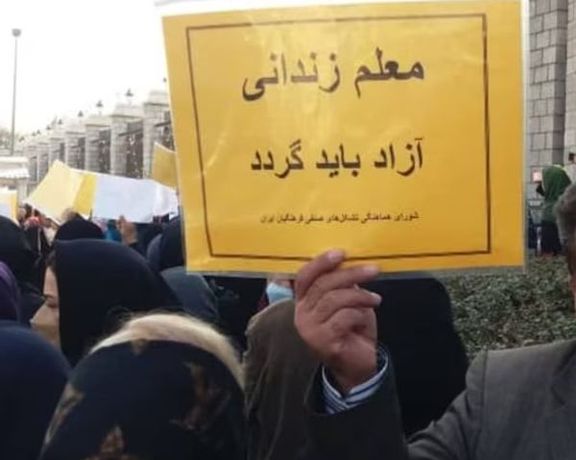
Iranian teachers have launched a campaign to collect 100,000 signatures calling for the release of detained educators and end to their harassment.

Iranian teachers have launched a campaign to collect 100,000 signatures calling for the release of detained educators and end to their harassment.
Esmail Abdi, a teachers’ union leader who has been in prison since 2015 backed the initiative by sending a message from jail. He said that the extent of repression against teachers has expanded in recent years.
Abdi who was the leader of Tehran Teachers’ Association was sentenced to a six-year term in 2016 but is still in prison.
A current campaign has already collected 10,000 signatures, but teachers’ union members, some in exile, have called for collecting one hundred thousand.
Last week, 1,200 teachers sent a letter to the heads of the three branches of government asking them to release detained union activists and end harassment by security forces and the Judiciary that continues to fabricate legal cases against union members. However, the president and the head of the judiciary refused to accept the letter.
Teachers say that in most likelihood, top state officials think 10,000 signatures represents just one percent of the one million teachers in the country. This is the reason the activists have embarked on collecting 100,000 signatures.
Teachers maintain that they have pursued their demands through peaceful and legal means for two decades, but the Islamic Republic has always dealt with them through force and intimidation.
Teachers have been demanding higher wages and pensions for years, as one of the lowest paid class of government employees. In 2010s, government appointed officials embezzled hundreds of millions of dollars from their pension fund, without any serious consequences.
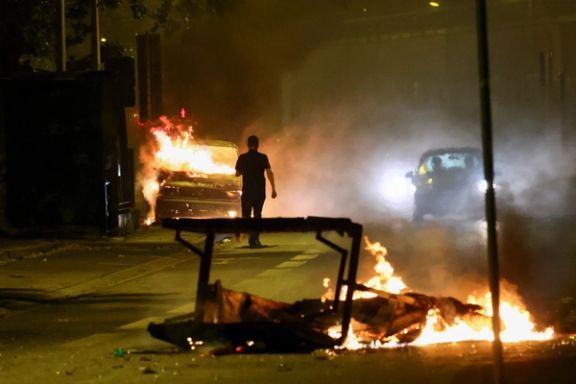
The French secretary of state for Europe, Laurence Boone, said several countries cynically instrumentalized France's recent riots, including Iran, Turkey and Azerbaijan.
“We must absolutely not be fooled by the cynicism and bad intentions of certain countries, which never hesitate in the face of instrumentalization or disinformation”, added Boone during a Senate speech on Wednesday.
“In some countries, the images of the events are used for the benefit of the propaganda of the regimes and we have systematically responded to these malevolence, in particular to the Azerbaijani, Turkish or Iranian remarks”, she continued.
In early July, Iran’s foreign ministy spokesman Nasser Kanaani called on the French government and police "to take into account the demands of the protesters while exercising restraint and avoiding violence.”
In response, the spokesperson of the French Foreign Ministry slammed Iran's record of killing and blinding protesters.
Referring to the protests which erupted in France following the death in police hands of a young Muslim, Anne-Claire Legendre said: “We understand your concern for human rights and the lives of French citizens ... and for this reason, we will not kill anyone with a weapon of war, nor will we shoot an eye to blind it!”
Legendre was referring to the killing of hundreds of protesters by the Iranian regime in the months following the death in custody of Mahsa Amini in September. The Islamic Republic security forces also systematically targeted protesters’ eyes.
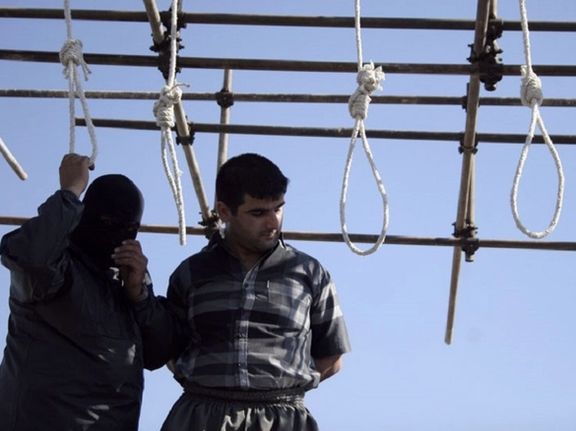
Iranian media reported that two other men were publicly hanged in Fouladshahr, Esfahan province, on charges of moharebeh (enmity against God) and corruption on earth on Wednesday.
According to the Judiciary's Mizan website, the two men identified as Mohammad Ghaedi Nasab, 35, and Sadegh Mahmoudi Baram, 25, were publicly hanged after a criminal court sentenced them to death for participation in murder.
It is alleged that the two defendants fought and disarmed officers, killing one and causing another to lose a finger on November 18, 2021.
The executions bring this week's total of public hangings to four.
On Saturday, Iran hanged two Afghan men in public on charges of playing a role in an attack on a shrine in October 2022 where 15 people died and 20 were wounded.
Mohammad Ramez Rashidi and Naeem Hashem Ghetali were hanged in a street near the Shahcheragh Shiite shrine and mausoleum in the southern city of Shiraz early in the morning. Iran's official news agency IRNA said they were hanged before dawn with “hundreds of the families of the martyrs” and other citizens of Shiraz witnessing the executions.
The attack on Shahcheragh shrine took place October 26 last year when anti-regime protests were raging on in Iran. This led to speculations and accusations that the attack was staged by the government to divert attention from the protests and also justify a crackdown.
Meanwhile, death sentences of at least three other citizens with charges like drug trafficking and murder were in Jiroft, Kerman province.
Earlier, the US-based Human Rights Activists News Agency (HRANA) mentioned in its annual report that in the previous Iranian year ending on March 20, at least 617 citizens were executed, two of them in public.
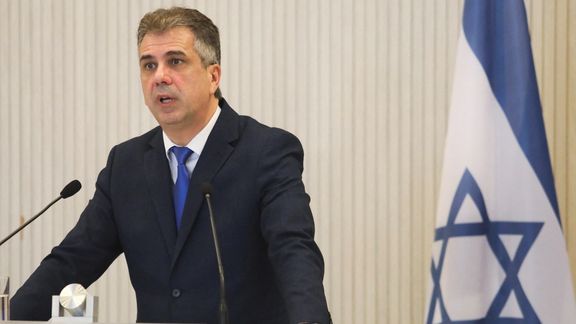
Israel has claimed that Iran was behind a foiled attack on its embassy in Azerbaijan, the latest in a wave of regime’s plots against Israeli targets abroad.
Foreign Minister Eli Cohen described the Iranian regime as a “global terror threat” Thursday, adding that Tehran is orchestrating a series of attempts to harm Israelis abroad. “Tehran stands behind the attempt,” Cohen said in a statement during an official visit to Serbia.
He made the remarks two days after Azerbaijan's security agencies said they thwarted a terrorist attack on the Israeli embassy in the capital Baku, arresting a 23-year-old Afghan national identified as Fawzan Mosa Khan.
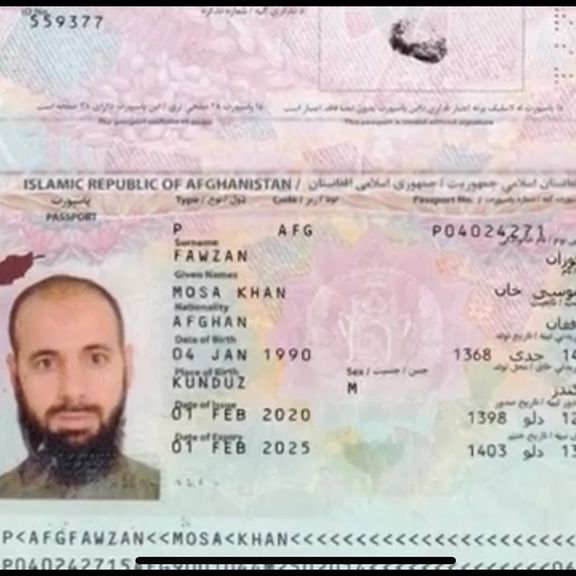
“Iranian terror is a global threat, as we saw in the past few days in Azerbaijan in an attempted attack against the Israeli Embassy in Baku, as well as in recent months in Cyprus and Greece in attempted attacks against Israelis and Jews,” Cohen said, adding Iran had funded and issued instructions to the terror cell that attempted the attack.
He also reiterated calls on the international community to come together to oppose the Islamic Republic’s terror activities.
During a visit to Azerbaijan on Thursday, Gallant said Israel and its foreign partners have foiled more than 50 Iranian-orchestrated attacks on Israelis and Jews abroad in recent years.
"At its supreme leader's orders, Iran has in recent years waged a worldwide terror campaign of unprecedented scale, focused on Israelis and Jews ... We are talking about more than 50 attempted attacks," Israeli media quoted him as saying.
According to Azerbaijan’s State Security Service, Mosa Khan was planning to commit a terrorist act accompanied by an explosion, fire or other similar events in conspiracy involving other individuals. It added that he came from “a foreign country” in order to surveil “a third country embassy,” recruit a cell and obtain weapons and funding.
Israel's intelligence agency, Mossad, recently revealed new details about a terrorist cell directed by Iran which intended to harm Israeli businessmen in Cyprus after Cypriot intelligence services revealed they had foiled the Iranian plot.
Israel later said its agents in Iran succeeded in capturing the suspect behind the IRGC-planned attack on its nationals.
The Mossad published a video of the captured agent, identified as Yousef Shahabazi Abbasalilo, sharing details of his entry to Cyprus through the Turkish occupied north and how he had scoped out the location of the first target for assassination, prepared the weapon and concealed it on word that he must flee just days ago. Iran rejected the veracity of the video.
In March, Greek police arrested two Pakistani nationals who were allegedly planning mass-casualty terrorist attacks against a Jewish restaurant and Chabad House in Athens.
In November of last year, Georgian security officials revealed they had foiled a recent attempt by the extraterritorial arm of Iran’s Revolutionary Guards, the Quds Force, to kill a prominent Israeli-Georgian living in the capital Tbilisi.
The latest plot comes amidst simmering tensions between Iran and its archrival Israel, and with its neighbor, Azerbaijan.
Tensions which have been rising between Iran and Azerbaijan since November 2022 when both sides accused each other of engaging in terrorism and espionage in the other’s territory. Things worsened with the opening of the Azerbaijan embassy in Tel Aviv, which angered Tehran. Iran has conducted military drills on Azerbaijan's border as a show of force.
In June, Baku closed the Islamic Republic’s cultural attaché office in the city, about a week after an opposition group released documents obtained from a hack into the Iranian presidency servers, showing that the Iranian government is eying ways to redefine its relations with Azerbaijan.
Iran has suggested Azerbaijani involvement in the October 26 attack in Shiraz claimed by the Islamic State group (Isis-Daesh) and, also accuses Baku of harboring Israeli intelligence and military elements that plan to use its territory in a possible attack against Iran’s nuclear facilities.
The two countries in early May expelled each other’s diplomats after incidents that Baku also dubbed as "terrorist attacks". These included a gunman’s attack on Azerbaijani diplomatic mission in Tehran in January after which Baku shut down the embassy and an attack on Azerbaijani lawmaker Fazil Mustafa in March, who is an outspoken critic of the Islamic Republic.
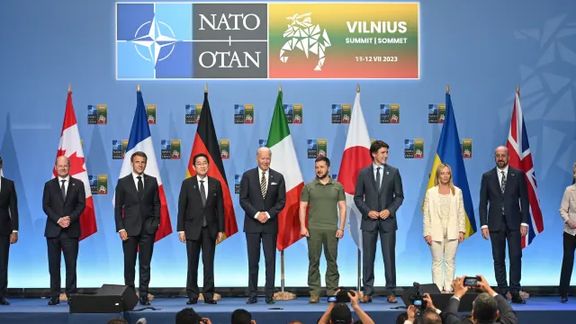
Iran has issued a vague response to a statement by NATO this week, calling on Tehran not to render military assistance to Russia.
The Iranian embassy in Brussels issued a statement on Thursday rejecting NATO “allegations” in general terms, but not directly refuting accusations that it has been supplying kamikaze drones to Russia.
The statement insists that Islamic Republic has maintained “neutrality” in the Ukraine conflict and remains committed to the United Nations charter, including respect for the independence and “territorial integrity” of all countries.
NATO’s 31 member states issued a statement during their summit in Lithuania calling "upon Iran to cease its military support to Russia, in particular its transfer of Uncrewed Aerial Vehicles (UAVs) which have been used to attack critical infrastructure, causing widespread civilian casualties.”
Western powers have been urging Tehran for months not to supply drones and other weapons to Russia. The United States has even made it a condition for the resumption of nuclear talks suspended last September, saying Iran should stop its burgeoning military cooperation with Russia.
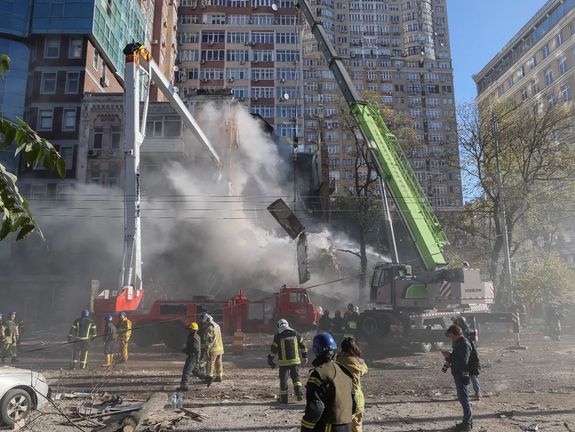
So far, Iran has supplied hundreds of its Shahed drones that are sent on one-way missions carrying nearly 50 kilograms of explosives.
On the same day that Iran issued its statement, Russia launched 20 Shahed drones against Ukrainian cities including the capital Kyiv, which caused destruction and injuries.
However, nowhere in the statement Iran even mentions NATO criticism of its military cooperation with Russia or the drone issue. Iranian officials in recent months have used the same tactic, expressing neutrality regarding the war in Ukraine and avoiding direct response to accusations of supplying drones to Russia.
When evidence began to emerge last October of Iranian drones targeting Ukrainian cities, Tehran first denied the accusation but a few weeks later in early November, foreign minister Hossein Amir-Abdollahian finally admitted sending drones, but claimed they were shipped before the Russian invasion.
NATO also called on the Islamic Republic to end its covert activities on the territories of its member states. "We express our serious concern over Iran’s malicious activities within Allied territory."
The United States and Britain have accused Iran of numerous terror plots on their soil in the past two years. Last November, Iran International TV moved its broadcast operations to Washington DC after the British police found credible information that Iranian agents were plotting to harm its journalists.
In its statement, Tehran tries to turn the tables and accuses some Western countries of fomenting unrest in Iran.
“Despite Iran’s commitment to observe international law, it has been harmed by the actions of some NATO members by their active support for unrest [in Iran] by providing refuge to elements and subversive terrorist organizations,” the statement claimed.
Iran labels the popular anti-regime protests that broke out last September as “riots” and has been blaming its “enemies”, presumably the United States, European powers and Israel for planning the unrest.
The Iranian statement also claimed that the Islamic Republic has played a “leading role” against terrorism in the region. In fact, Tehran supports and arms an array of militant organizations in Iraq, Syria, Lebanon and Palestinian territories.
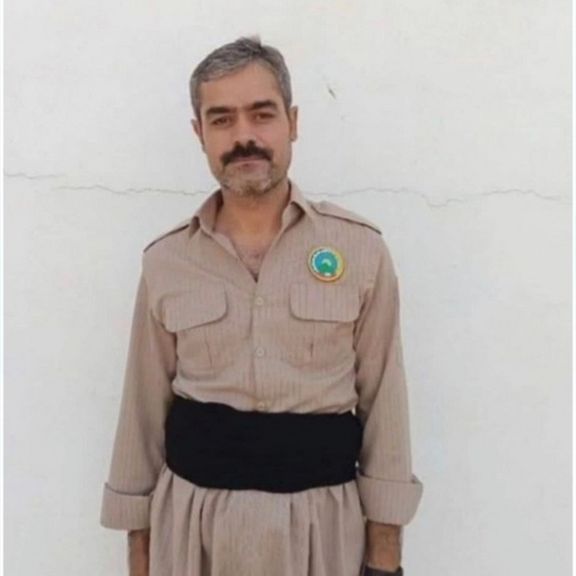
The Kurdistan Democratic Party of Iran says with the assassination of another of its members the number of people killed by the Iranian regime reached three since last week.
"Siamand Shaboi, a member of the Kurdistan Democratic Party of Iran and a resident of Shanu city, was assassinated by the terrorists of the Islamic Republic in Baherka district near the city of Erbil, the capital of [Iraq's] Kurdistan Regional Government,” read a statement released on Wednesday.
"The Democratic Party expresses its condolences to his family and condemns this terrorist act of the regime of the Islamic Republic of Iran."
According to Hengaw Organization for Human Rights, the body of Shaboi, was found in an unfinished building 10 kilometers from Erbil, around noon on Wednesday.
The political activist who had found refuge in Iraq was found dead with several bullets in his back, according to Hengaw's sources.
A close relative of Shaboi told Hengaw that "he had disappeared since yesterday [Tuesday] evening. He disappeared in a completely unprecedented manner. We hold the terror teams of the Islamic Republic of Iran responsible for this assassination."
The Iranian government had threatened Shaboi many times over the past few years, and recently his two brothers and his 14-year-old son were arrested.
A week ago, the Kurdistan Democratic Party of Iran said two of its forces were killed by the Islamic republic agents in the Kurdistan Region of Iraq.
Last year, the party was the target of IRGC artillery attacks during the nationwide uprising against the Islamic Republic.